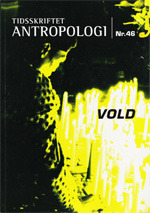LYNCHNING: EN SVØBE FOR MENNESKEHEDEN
DOI:
https://doi.org/10.7146/ta.v0i46.107130Resumé
The article explores the phenomenon of
mob violence in predominatly Mayan
towns in rural Guatemala. Since 1996,
more than 100 people have been killed by
crowds in rural towns. The victims have
usually been young men accused of often
minor criminal acts, or representatives of
the state trying to protect the victims. The
occurrence of mob violence coincides
roughly with the area where the army
organized civil self-defence patrols during
the civil war from 1981-96 as part of the
national security counterinsurgency program.
The post-conflict transition has
paradoxically brought security back to the
top of the political agenda as political
violence has been substituted and overshadowed
by violence related to drug
trafficking and other forms of criminality.
The article shows how mob violence has
been interpreted in the context of postconflict
transformations where the elimination
of violence and violent conflicts has
been addressed as an object of development,
and suggests that we, in addition to
common sociological interpretations, may
understand lynchings as an exclusive
practice of communal sovereignty within
a transnational political field of politics
of in/security.
Downloads
Publiceret
Citation/Eksport
Nummer
Sektion
Licens
Ophavsretten til artiklerne i Tidsskriftet Antropologi tilfalder forfatteren.
Artikler publiceret i Tidsskriftet Antropologi må citeres, downloades og videresendes for ikke-kommerciel brug, under forudsætning af normal akademisk reference til forfatter(e) samt tidsskrift, årgang, nummer og sider. Artiklerne må kun genudgives med eksplicit tilladelse fra forfatter(e) og tidsskriftet.


